- Home
- Rick Mofina
Be Mine Page 15
Be Mine Read online
Page 15
“You’re talking about the language and symbolism of flowers.”
“That’s it.”
“That’s easy. First off, giving someone white roses can mean a lot of different things, but generally it means silence, secrecy. Or that you want to share a secret with someone.”
“Really?”
“I wouldn’t get too worked up over it.”
“Why?”
“Most people have no idea about the significance.” Most people don’t go around killing homicide detectives, Tom thought later that night as he tried to sleep. The meaning of white roses gnawed at him.
Secrecy.
It fit with the fact that the cards were unsigned. There could be something here.
THIRTY-NINE
Molly’s pain was his pain.
Like everyone, Bleeder saw the news pictures of her being escorted by the detectives from Ray Beamon’s house in Bernal Heights. Absorbing the images filled his heart with expectation. He was getting closer.
And closer.
Bleeder yearned to see her. Ached to see her. As dangerous as it was, he’d promised himself a glimpse as his reward for taking care of another obstacle. It was inspiration to keep going. He’d been so exceedingly careful, so exceedingly patient. Something would happen.
He’d earned it.
Bleeder snapped to attention. Here we go.
An unmarked Chevy Impala braked to a stop in front of Molly’s building. Inspector Linda Turgeon got out to talk to the uniform keeping vigil. The rookie officer had barely kept awake after polishing off his submarine sandwich, then working his way through the sports pages of USA Today.
Bleeder was invisible to him.
He was in a rented car with dark windows parked two streets over where he had a perfect line of sight on Molly’s building. He was near a small park next to a vacant lot. He drew no suspicion from any neighborhood busybodies. He had a small parabolic microphone aimed at the cop. It boosted sound some seventy-five times. Bleeder heard every bite and crunch it took the officer to down his sandwich. He heard every radio dispatch. And he had a high-powered night-vision scope.
He saw and heard everything.
“I’m just going in to pick up a few things for her,” Turgeon told the officer before she entered Molly’s upper apartment. A few moments later she trotted out with a shoulder bag.
“Inspector?” the officer called to her. “How much longer we going to sit on her house?”
“Likely until after the funeral when things cool down. Hang in there.”
Turgeon wheeled her car from the edge of Telegraph Hill, making her way to the freeway south out of the city. Bleeder came alive. His fingers squeezed the wheel as he followed her. Along the drive, he thought of Molly as the most important question ate at him.
Why?
Why haven’t you realized who I am and what I’ve done for you? It’s dangerous for you to wait too long. What’s it going to take for you to understand that we belong together? Bleeder tried to relax. Be patient. It’s going to happen. The press is doing its thing. The police are doing theirs. And you’re doing your thing. Keeping vigil, waiting until she sees the light.
And she will see the light.
He thought of Molly’s soft skin against his, her scent, and the curves of her body.
In his mind, their souls had fused.
He was helping her to understand. Removing all obstacles. Hooper was an obstacle. Now he was gone. Beamon was an obstacle. Now he was gone. Bleeder wouldn’t allow any more obstacles. How long before you realize that you’re mine?
Just like Amy was mine.
Yes, well, that whole matter was unfortunate.
As they headed south on the 101 to the San Mateo Bridge, Bleeder thought of another bridge, one from his past, and he journeyed back. After the fiasco with Kyle at the diner, he’d changed his strategy. The town was too small for effective surveillance, so he’d decided to craft an in-country operation.
The answer was simple.
Amy’s family lived at the edge of town, inside the county line, down a narrow one-mile stretch of blacktop, nicknamed Hangman’s Lane. It was the site of the county’s last execution in the 1800s, according to the local history in the library. Bleeder had looked it up.
One punishing winter, a mute, demented hermit named Lud Striker tore off his clothes, sharpened his ax, then chopped up his animals. His six cows, his horse, his pigs, his chickens, his dogs. Even his cats. Then he covered his body with their steaming bloody entrails and roamed his fields to the home of his neighbors, with whom he’d had a bitter and long-standing feud over property and water access. Striker murdered them all in their sleep. A farmer, his wife, their three children. They found him in the farmer’s bed, asleep among the corpses. Striker was hanged from a tall oak tree.
A story of vengeance.
Bleeder loved it and he loved driving down Hangman’s Lane alone at night, along the twisting road that cut through wooded and hilly dairy country. At one point, it curved sharply, then dropped into a valley to a railroad tie bridge that stretched across a creek thirty feet below.
Bleeder got to know that section of road intimately. He put his research to work. Every night after cruising around town with Amy in his Camaro, Kyle would drive her home down the lane. They’d make out on the front porch until the house lights flickered on and off around midnight, which meant Amy’s parents were signaling her curfew.
Like clockwork, Kyle would fire up his Camaro, grind through his gears, squealing in each one, as he rumbled down Hangman’s Lane, rocketing through the tranquil rural night with Led Zeppelin cranked.
Bleeder discovered a slip of a cow path shrouded by a thicket, under a stand of chestnut and oak trees near the bridge. For several nights, he backed his dad’s old Ford into it, vanishing into the darkness. Thinking of Lud Striker and waiting. He had a clear line of sight for Kyle’s approach from Amy’s house, the Camaro’s lights growing bigger, its engine and music louder. Without fail, Kyle would crest the hill, rip down the creek valley, hugging the curve so fast the car’s suspension would strain until the oil pan would nick the road surface on the approach to the bridge, emitting a comet’s tail of sparks from the undercarriage.
Kyle never once slowed down before the bridge.
Like clockwork, the oil pan scraped, sparks would fly, and he would blast clump-dum-clump along the bridge over the creek.
Afterward, Bleeder walked to the spot, knelt, and examined the series of deep scrapes left by the oil pan. Scores of them. A clear indication that the farm boy was routinely hitting the bridge at high speed. Tsk, tsk. Bleeder shook his head, gazing at Kyle’s disappearing Camaro, its lights shrinking under the endless night sky, until, poof, Kyle was gone.
Bleeder ran his fingertips over the scrapes, feeling how they scarred the surface, just as Kyle and Rowley had scarred his face the day they beat him after school in the field by the train tracks.
Bleeder’s wounds had healed, but the violation still burned.
My turn to give you a lesson ...
Now as he followed Turgeon’s taillights into Alvarado, Bleeder surfaced from his thoughts.
Alert, he kept a safe distance. He trailed the Chevy through a sleepy residential area until the brake lights came on, then went off, when Turgeon stopped in front of a small bungalow sheltered by huge shade trees.
Bleeder identified the unmarked cars parked nearby. County guys and maybe an SFPD car. He rolled his rental car swiftly into a side street that allowed him cover and a safe line on the small house.
Only a moment. That’s all he wanted.
Bleeder set up on the house, directing his night scope to a window with a crack between the curtains. The anticipation was excruciating as he adjusted the focus. He saw a curtain ripple. A blur. A glimpse of Turgeon.
Then...Molly was trapped in his crosshairs.
His prize.
It won’t be long now.
FORTY
Stiff and sore, Sydowski dragge
d himself to his door before dawn for the morning edition of the Star. It was still dark. The case had kept him awake all night. As he studied the paper in his kitchen, Tom Reed’s interview with Ray Beamon jerked him awake.
“What the hell is this bullshit, Reed?”
Sydowski devoured the story, then grimaced as he took a hit of black coffee. Would’ve been interested in knowing about that interview, Tom. Might’ve been able to work something out.
Too late now, sonny boy.
Sydowski scratched his whiskers, then went to his aviary with the full weight of the case on his shoulders. He listened to the soft chirping until it was time to go to his meeting with Gonazales and Turgeon at an admin room at the Hall.
It was just the three of them.
Gonzales dropped his worn leather briefcase on the table, deposited himself in a swivel chair.
“I’ve been getting calls. All last night and this morning.
‘Friendly enquiries of support’ from the mayor, the commissioner, and the chief. They want this thing cleared fast. They say it’s like an open wound festering on the image of this city and its PD.”
“There’s a surprise,” Sydowski said.
“Well, frankly, I don’t give a damn about them. We owe it to Cliff and Ray, and we owe it to our detail, to clear this.” Gonzales blinked back his emotion, then continued. “No one knows of our huddle here. I want you to put all your hold-back and theories on the table now. I want to get a feel for where we’re at. Exactly where we’re at. So whatever is said here, stays here. All right?”
“Fine,” Sydowski said.
“Did we make much progress with Molly Wilson’s first list right after Hooper’s murder?”
“We checked out the names and cleared them initially. Then we went hard on Ray when it all pointed to him.”
“We’re back on those names. What do we have now?”
“We have a larger suspect pool in alpha order.” Sydowski slid a page to Gonzales. “I did some checking this morning, talked to Molly, and amended things.”
Gonzales stared at the list:
Duane Ford, SFPD Tac Team, San Francisco
Rob Glazer, technician for big films, Los Angeles
Manny Lewis, D.A.’s office, San Francisco
Cecil Lowe, ATF Agent, San Francisco
Pete Marlin, U.S. Marshal, San Francisco
Steve Murdoch, airline pilot, San Diego
Park Williams, FBI Agent, San Francisco
Frank Yarrow, corporate security, Kansas/Colorado
Sydowski opened his notes.
“Molly dated every guy on that list for at least a month. No one longer than six months, she figures.”
“Any bad breaks, violence, grudges, threats?”
“None according to her.”
“What about casual dates?”
“That’s another list. It includes people at her newsroom, mostly friends. We pretty much cleared them already as to who was working when. That went fast.”
“You say you amended the A-list?” Gonzales continued studying it.
“Yes, Glazer, Murdoch, and Yarrow were her add-ons because they don’t live in the Bay Area. We’ll run through all of them as fast as we can and pare it down.”
“Most of the guys on this list would know about crime scene investigation and techniques.” Gonzales shook his head. “We got nothing physical from either scene. No leads from the autopsy. Just SXT Talons. No casings. No weapon. No latents. No DNA. No fibers. Our balls are in a vise here. Christ.”
“Look, this is a new investigation,” Sydowski said. “Give us the bodies and we’ll check these guys out. Eliminate whoever we can from this list. We should be able to knock it down pretty fast.”
“It isn’t going to be easy. If our guy is one of these eight, then he’s going to expect you to run at him and he’s going to be alibied solidly. He’s going to cover his tracks. Be airtight on his story. He’s not going to make it easy for you. So never let your guard down with any of them.”
“We’ll check, double and triple-check their whereabouts.”
“Let’s go back on the physical stuff. What about the ritualistic nature, the placement of their guns, IDs, the blood message on the wall, the word Why. What do we make of that?” Gonzales asked.
“I did some work with Dee, the FBI VICAP coordinator at Golden Gate. We checked on serials, gangs, blood cults, ritual placement of items. Everything. Blood messages. Key word stuff. Murders of law enforcement officers,” Turgeon said. “We also checked everything against other databanks, CLETS, LEADS, PIN, CABLE, CDC’s systems, NCIC.”
“Any hits?”
“Nothing.” Turgeon shook her head, went through her notes.
“Could be that all that stuff with the blood message and ID could’ve been done to throw us off. A cop would know about things like that,” Sydowski said.
“So would anybody who reads murder mysteries,” Turgeon said.
“Maybe we ought to bring in a profiler,” Gonzales said. “To tell us what we already know?”
“To tell us what we don’t know,” Gonzales said. “Look, we also have the TV show, Crime Scene. I called over. The producer has volunteered everything sent to Molly from crazies. No warrants needed.”
“They probably want to work it into their show,” Sydowski said.
“Play along if it helps the case.” Then Gonzales said, sliding Sydowski that day’s San Francisco Star with Beamon’s last interview, “It would be good for us to know everything Ray said about old cases, threats, and vendettas.”
Sydowski’s eyes raked across the front page.
“I’ll be taking a hard look into that.”
FORTY-ONE
Silence and secrecy.
That was the age-old symbolism of giving white roses. But what the hell did it mean in Molly’s case? Tom wanted to know.
Did they have anything to do with Hooper’s and Beamon’s murders? What did those cryptic notes mean? It rankled him. He had to find out.
He glanced at his watch as he headed across the Bay Bridge to Oakland. He didn’t have time to pursue it. Not now. Late last night and earlier today he’d transcribed his interview with Beamon. Every word. The part where he’d asked Beamon about vendettas kept coming back at him ...
“... There’ve been threats, but those who make a lot of noise never come after you. If someone’s serious, you’ll never hear them coming.”
That part.
“There’ve been threats ...”
What threats? Who made them? When? Tom kicked himself for not pushing Beamon on that question. And he cursed Irene Pepper for making him rush the story before he’d had the chance to go to Sydowski on what Beamon had said.
Hell, he was going to have to be smarter. A lot smarter with Pepper.
It was his own damned fault for leaving his tape out in plain sight knowing she was one of the Star’s worst desktop snoops. Anyone could’ve seen it near his keyboard. Admit it. You were careless. Now you’re paying the price.
Sydowski hadn’t returned his calls this morning, leaving Tom to try connecting with his best street sources. Angela across the bay was first. Word was she’d been around. He parked his car near a warehouse on the waterfront a few blocks from Jack London Square, then hit the street asking around.
Angela was white and in her mid-thirties. She had short bleached hair, was partial to big hoop earrings, jeans, and black leather waist-cut jackets. More important, she was his conduit to Donnie Ball.
Donnie was an East Bay County detective. Make that a former detective. The big red-haired Irish American was doing nine years after the FBI nailed him for robbing banks. Ball was a brilliant egomaniacal dumb-ass. But he was tuned in to a lot of data on the criminal and cop grapevine. Even from his Level-IV, maximum-security residence at Folsom’s C-Yard. And he was good at bartering valuable intelligence via his girl on the outside, his angel, Angela.
After an hour or two, the blast of tugs and cries of shrieking gulls overhead were the
only sounds Tom had picked up from the waterfront. No sign of Angela. He’d try again tonight, he reasoned, after crossing back over the bridge and heading for San Francisco’s Mission District and another source, Lois Hirt.
He parked a few blocks from the Sixteenth-Street BART Station, began walking the streets while bracing for frustration. Lois was one of his best sources. In all the time he’d known her, she’d never once lied or misled him. Her information was dead on the money. Every time. But finding the college dropout was about as easy as reaching the summit of Everest.
Lois Hirt was a heroin addict.
And at times she was as elusive as the wind.
After nearly ninety minutes of checking the usual places, of asking and waiting around, he’d recognized that sinking feeling. He’d struck out. No way was he going to connect with her today. After packing it in and heading back to the car, his cell phone rang.
“Reed.”
“Got your message,” Sydowski said. “What do you want? I’m busy and grouchy.”
“Sounds like two of the dwarves.”
“Reed.”
“I’ve got to talk to you.”
“About what?”
“You know what.”
“By the by, your story pissed me off.”
“I just want to talk.”
“I don’t have much time for you, pal.”
“It might be useful for you to meet me. We can trade things.”
Sydowski emitted a long, tired sigh.
“Nick’s. I’ll be there in half an hour.”
FORTY-TWO
Nick’s Diner was a short walk from the Hall of Justice and a hangout for crime fighters who favored greasy fried food and strong coffee. Tom found Sydowski alone in a corner and ordered a cup for himself.
“How’s Molly doing?” Tom asked.
“Think of the circumstances and draw your own conclusions.”
All right. Sydowski was pissed off.
“You know, I was planning to come to you with Ray’s interview before we ran it.”

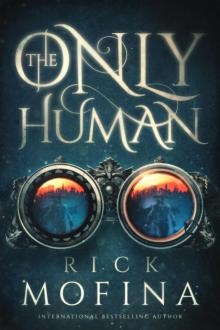 The Only Human
The Only Human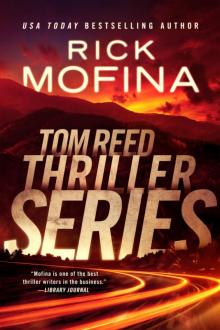 Tom Reed Thriller Series
Tom Reed Thriller Series![[Tom Reed and Walt Sydowski 04.0] No Way Back Read online](http://i1.bookreadfree.com/05/tom_reed_and_walt_sydowski_04_0_no_way_back_preview.jpg) [Tom Reed and Walt Sydowski 04.0] No Way Back
[Tom Reed and Walt Sydowski 04.0] No Way Back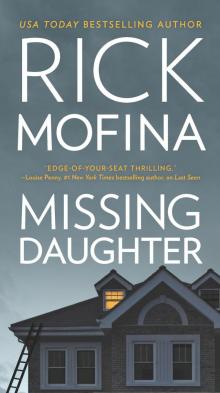 Missing Daughter
Missing Daughter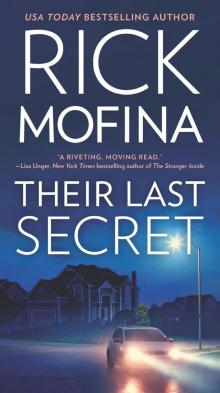 Their Last Secret
Their Last Secret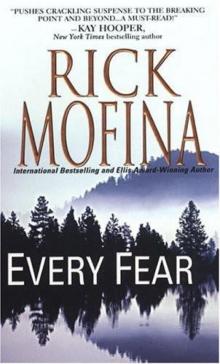 Jason Wade - 02 - Every Fear
Jason Wade - 02 - Every Fear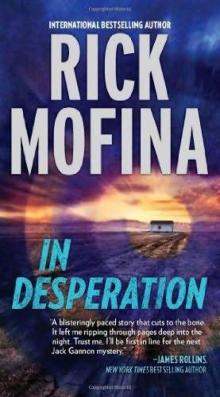 In Desperation
In Desperation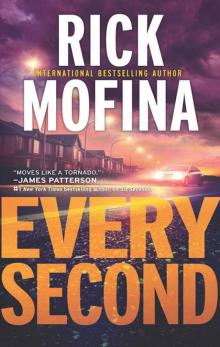 Every Second
Every Second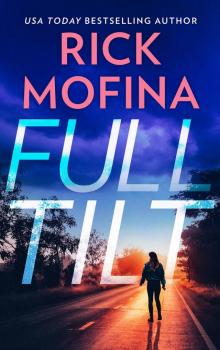 Full Tilt
Full Tilt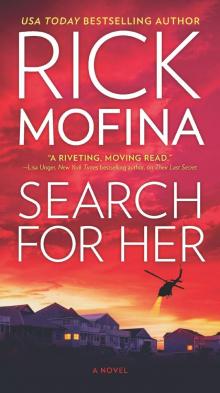 Search for Her
Search for Her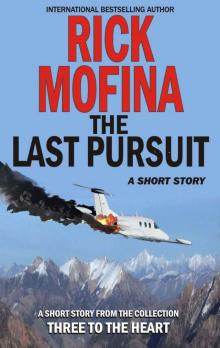 The Last Pursuit
The Last Pursuit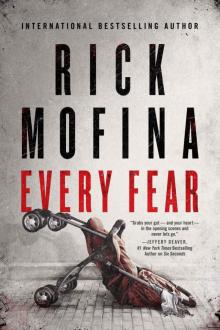 Every Fear
Every Fear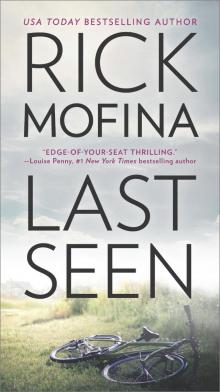 Last Seen
Last Seen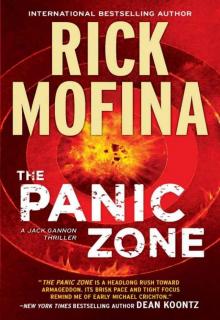 The Panic Zone
The Panic Zone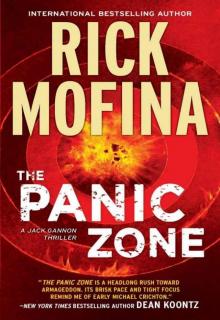 The Panic Zone jg-2
The Panic Zone jg-2 Free Fall
Free Fall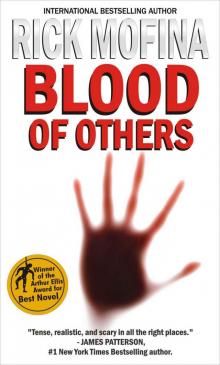 Blood of Others
Blood of Others![[Jason Wade 02.0] Every Fear Read online](http://i1.bookreadfree.com/i1/03/31/jason_wade_02_0_every_fear_preview.jpg) [Jason Wade 02.0] Every Fear
[Jason Wade 02.0] Every Fear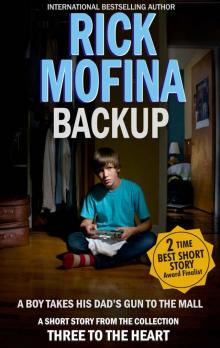 Backup
Backup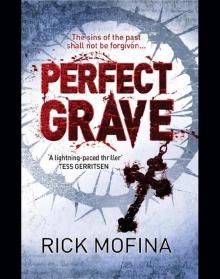 Perfect Grave
Perfect Grave Into the Dark
Into the Dark Whirlwind
Whirlwind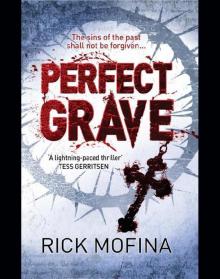 Perfect Grave jw-3
Perfect Grave jw-3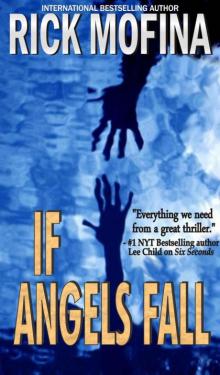 If Angels Fall (tom reed and walt sydowski)
If Angels Fall (tom reed and walt sydowski)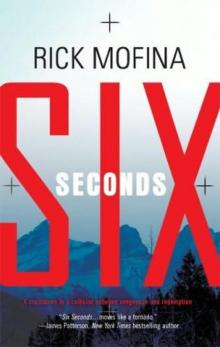 Six Seconds
Six Seconds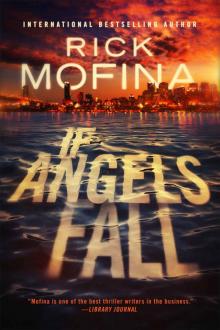 If Angels Fall
If Angels Fall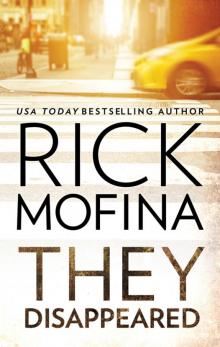 They Disappeared
They Disappeared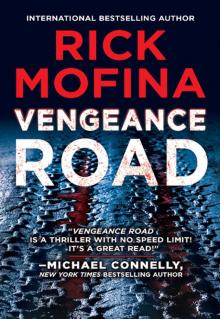 Vengeance Road
Vengeance Road Before Sunrise
Before Sunrise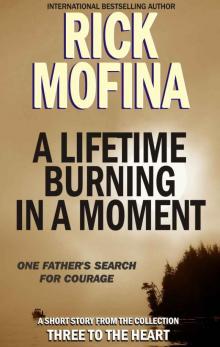 A Lifetime Burning in a Moment
A Lifetime Burning in a Moment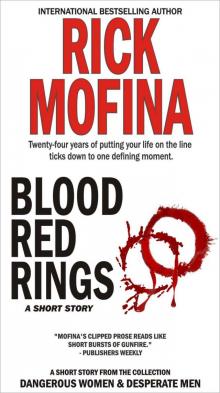 Blood Red Rings (Dangerous Women & Desperate Men)
Blood Red Rings (Dangerous Women & Desperate Men)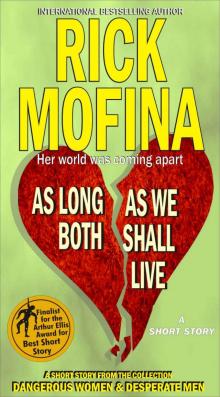 As Long As We Both Shall Live (Dangerous Women & Desperate Men)
As Long As We Both Shall Live (Dangerous Women & Desperate Men)![[Tom Reed and Walt Sydowski 01.0] If Angels Fall Read online](http://i1.bookreadfree.com/i2/04/12/tom_reed_and_walt_sydowski_01_0_if_angels_fall_preview.jpg) [Tom Reed and Walt Sydowski 01.0] If Angels Fall
[Tom Reed and Walt Sydowski 01.0] If Angels Fall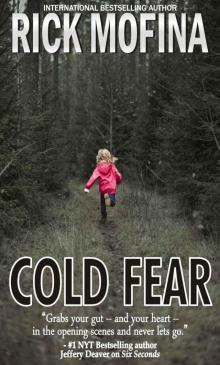 Cold Fear
Cold Fear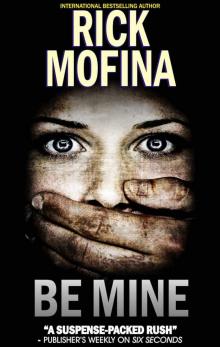 Be Mine
Be Mine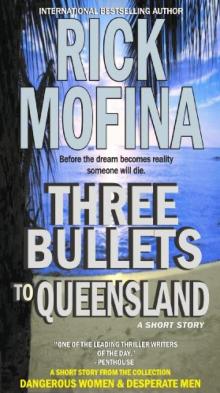 Three Bullets To Queensland
Three Bullets To Queensland